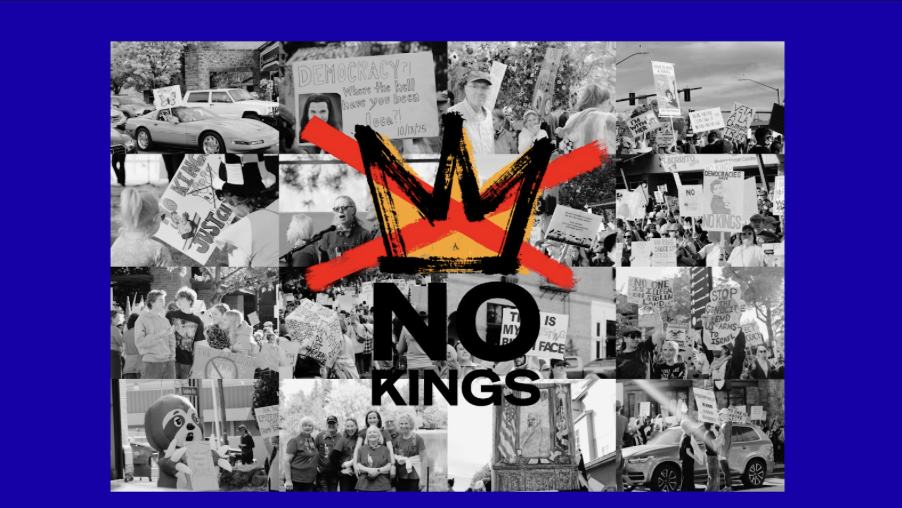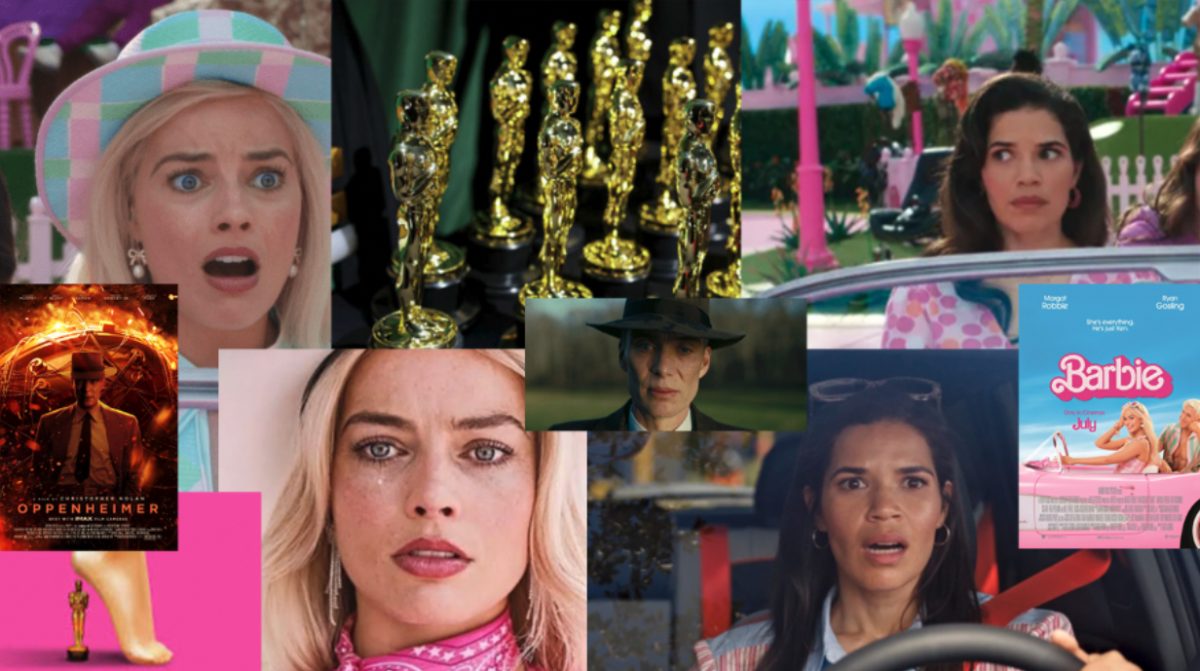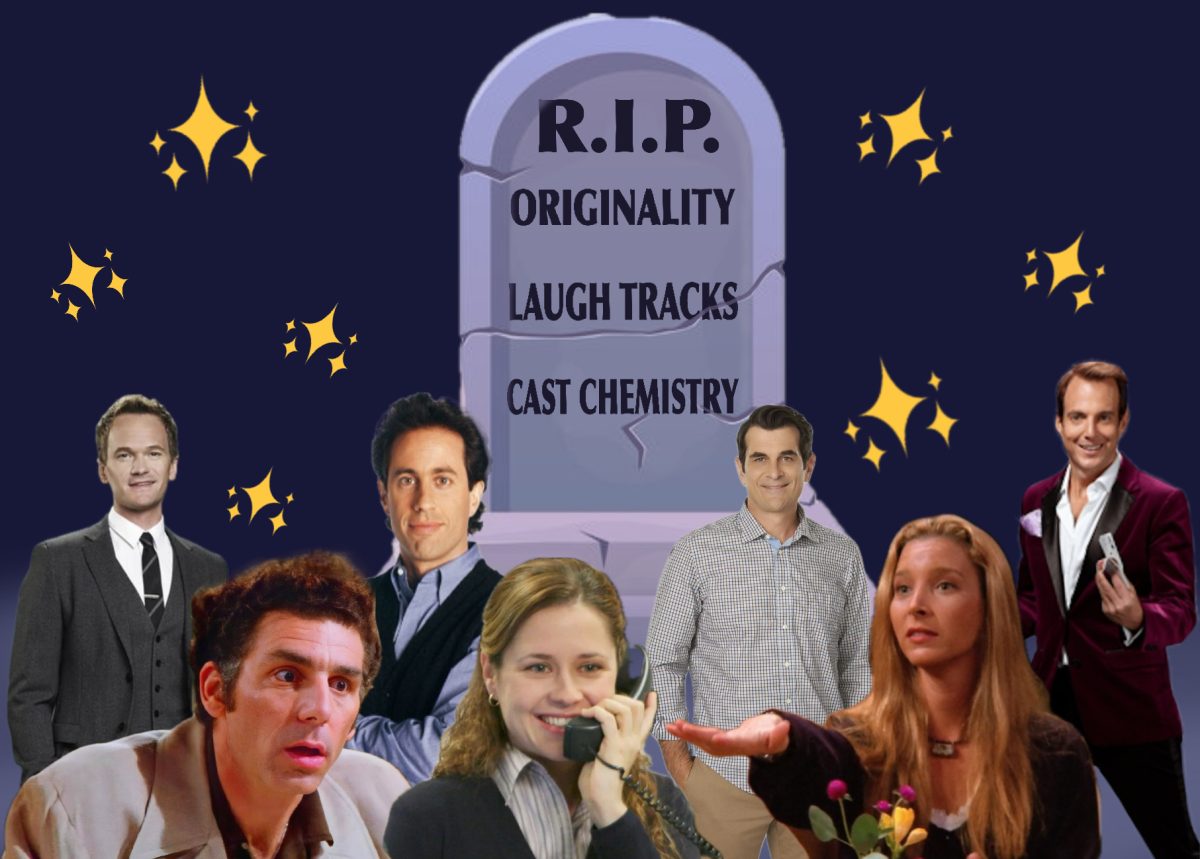Back in the summer of ‘23, the fusion between “Barbie” and “Oppenheimer” was all over every social media page. Barbie and Ken in a pink car with World War II explosions in the back was not a rare sight. Now, ever since the Academy released their nominations for this year’s award show, these movies have been in a foot race with no apparent end.
“Barbie” and “Oppenheimer” could not be more different from one another, with one being a self-aware feminist comedy and the other being a three-hour dark historical biopic, labeled ‘thriller.’ Oscar nominations are out, and “Oppenheimer” received 12 nominations to “Barbie’s” eight. Since these films were released on the same day, a lot of people went to see them together, and the reactions to these films were fairly neutral until the Oscar nominations were announced. Since then, these two movies have caused a decent amount of bickering between audiences, bickering that wasn’t happening when these were simply two movies released on the same day.
Based on a Pulitzer Prize winning novel, “American Prometheus,” a history based movie labeled “ Oppenheimer” set in 1942, U.S. Army Colonel Leslie Groves recruits J. Robert Oppenheimer as director of the Manhattan Project to develop an atomic bomb.
“Barbie” premiered in theaters on July 21, 2023, the same day “Oppenheimer” was released. In “Barbie,” Barbie (portrayed by Margot Robbie) and Ken (Ryan Gosling) are having the time of their lives in the colorful and seemingly perfect world of BarbieLand. However, when they get a chance to go to the real world, they soon discover the joys and perils of living among humans.
The movie was largely satire. “Barbie” starts in a perfect world, where everything seems ideal, everything is working smoothly and everyone seems happy. However, as the characters transition to the real world, they begin to see the cracks in the glass. Barbie experiences first-hand how stereotypes always seem to surround women, always expecting them to be perfectly imperfect. Gloria (America Ferrera) highlights this in her monologue hallway through the movie.
“You have to be thin, but not too thin,” said Gloria. “And you can never say you want to be thin. You have to say you want to be healthy, but also you have to be thin. You have to have money, but you can’t ask for money because that’s crass.”
Considering this movie had largely feminist messages, it’s ironic that one of its only nominations was the male supporting role—Ken, who took over BarbieLand and caused chaos. Even Ryan Gosling, who was nominated for his role as Ken, publicly disagreed with these nominations. He believes that America Ferrera and Greta Gerwig deserved more for the roles they played in these movies.
“With nothing but a couple of soulless, scantily clad and thankfully crotchless dolls, they made us laugh, they broke our hearts, they pushed the culture and they made history. To say that I’m disappointed that they are not nominated in their respective categories would be an understatement,” Gosling said in a statement provided to CBS News.
At the Golden Globes, Jo Koy, who hosted the award show, made multiple jokes about how shallow “Barbie” was in comparison to Oppenheiemer, and the level of misogyny in these jokes made many fans uncomfortable. Koy’s monologue for the night included jokes such as, “‘Oppenheimer’ is based on a 721-page Pulitzer Prize-winning book about the Manhattan Project, and ’Barbie’ is on a plastic doll with big boobies.”
People like Koy, hosting these award shows, have a high level of responsibility, and impact on how these movies are received. This, in turn, can affect the way audiences perceive the movie, including but not limited to the board who chooses Oscar nominations.
“[The board is] looking at [social media] to base their nominations on so they can get the most reactions possible,” noted Summit senior, Natalie Tripp.
There has been a noticeable amount of anger resulting from the Oscar nominations, including hate posts on social media sites, and newspaper articles disagreeing with the snubs.
However, “Barbie” was released to cause a stir; to highlight the everyday misogyny women have to face, and to show that the societal expectations placed on women are unattainable. But what ended up causing an even bigger stir was the nominations.
When we look back to older Oscar awards, the movies that end up winning aren’t always the movies that stick with us, or stay relevant. Nominations and awards aren’t always accurate and they seem to be trying to cause commotion.
“[The Oscars] are on their way out,” said Tripp. “Nobody is going to care about them in ten years in my opinion, and they want to cause controversy to get people watching the Oscars.”
There’s considerable amounts of outrage following every nomination. Whether or not you think “Barbie” was snubbed, doesn’t matter. Movies are movies nonetheless and it’s up to the viewer to decide the value of the movie. Awards like the Oscars matter to the actor’s career, but it doesn’t truly determine if viewers should or should not enjoy the movies.
Oscars shouldn’t be the only factor that affects a viewer’s opinion of a movie, because the motivation becomes corrupt. Award shows like these are no longer picking movies for their merit, but rather for how much they can get the public to react—and by enjoying the movie anyways, viewers can continue to support “Barbie” for the message it worked so hard to impart.

































Anonymous • Feb 26, 2024 at 1:57 pm
Jo Koy learned how to speedrun ruining a career in a single night. It genuinely amazes me too because like, there is no way you watch barbie, see the beautiful message and still say some BS like that. But also in general award shows have been on the decline for yearsss (game awards, Grammys, Oscars, etc.) as the publics trust in it not being 1000% rigged falters and they pull this like???